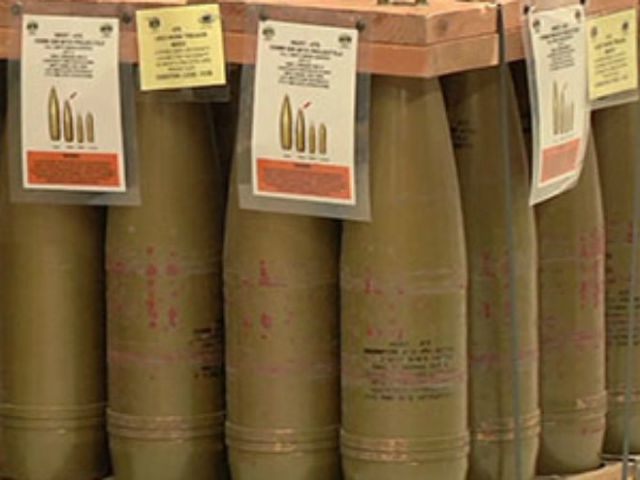Senior U.S. officials believe the Islamic State (ISIS/ISIL/IS) deployed mustard gas against Kurdish fighters this week in what would be the first confirmed use of Weapons of Mass Destruction (WMD) by the terror state. There were also reports last month of possible chlorine gas deployment by ISIS in Iraq, but those reports have not yet been confirmed, and Reuters points out that “chlorine is not a banned chemical agent.”
According to The Wall Street Journal, the most likely scenario involves mustard gas seized during ISIS victories against the Syrian government. It is also possible that it was obtained from one of the Iraqi stashes that the “no WMD were found in Iraq!” crowd pretends not to know about.
The WSJ tells us that U.S. intelligence has long suspected ISIS was sitting on at least a small amount of mustard gas, but “that intelligence assessment hadn’t been made public.”
This week’s suspected chemical attack went down Wednesday in northern Iraq, about 40 miles southwest of Erbil, where a group of sixty Kurdish Peshmerga fighters displayed throat injuries consistent with poison gas exposure. The report comes from the German Defense Ministry, which said it was dispatching experts to analyze the evidence. Fox News notes the Germans were close at hand because they have been training Kurdish forces in the area.
Wasn’t all of Bashar Assad’s poison gas supposed to have been neutralized by the Russians, after Vladimir Putin threw our bumbling Secretary of State John Kerry out of the region and took charge of the Syrian WMD crisis? As with all other Obama administration stories, what happened when American media stopped covering the story turns out to be very different from official rhetoric:
Islamic State has taken control of territory in Syria close to where President Bashar al-Assad’s forces stored chemical weapons, including mustard agent. The regime said in 2013 that all of its mustard stockpiles had been destroyed, either by Syrian forces themselves or by international inspectors.
Inspectors, however, have subsequently said they weren’t able to verify claims by the Syrian government that it had burned hundreds of tons of mustard agent in earthen pits. U.S. intelligence agencies now say they believe Damascus hid some caches of deadly chemicals from the West, possibly including mustard.
Intelligence officials and chemical-weapons experts have expressed concerns in recent months that some of those banned chemicals could fall into the hands of Islamic State or other extremist groups.
On the bright side, at least ISIS has yet to deploy the far more deadly sarin and VX gas believed to be in Assad’s possession. The bad news is that Assad might use those weapons, if he thinks one of his remaining vital strongholds is about to fall. He famously crossed Obama’s chemical weapons “red line” and killed a thousand people with gas two years ago, and, in fact, is suspected of using another prohibited weapon, napalm, this very week.
The worst part of what The Wall Street Journal reports is that Pentagon officials “sought to play down the dangers to U.S. military personnel in Iraq since they aren’t taking part in combat operations alongside Peshmerga fighters or other Iraqi forces.”
The Kurds are vital military allies, and President Obama has expected them to do the lion’s share of the front-line fighting against ISIS, with minimal support, while the Iraqi units lavishly supported by America broke and ran, often leaving caches of U.S. equipment behind for the terrorists to seize. We should be standing behind them, instead of averting our gaze while they dodge Turkish bombs and ISIS’ poison gas.
It also seems insulting for U.N. Ambassador Samantha Power, quoted by Fox News, to say these suspected chemical attacks by ISIS are “just systematic attacks on civilians who don’t accord to their particularly perverse worldview.” ISIS is unquestionably fond of attacking civilians in that way, but the Kurdish Peshmerga are tenacious and resourceful fighters, not civilians.

COMMENTS
Please let us know if you're having issues with commenting.